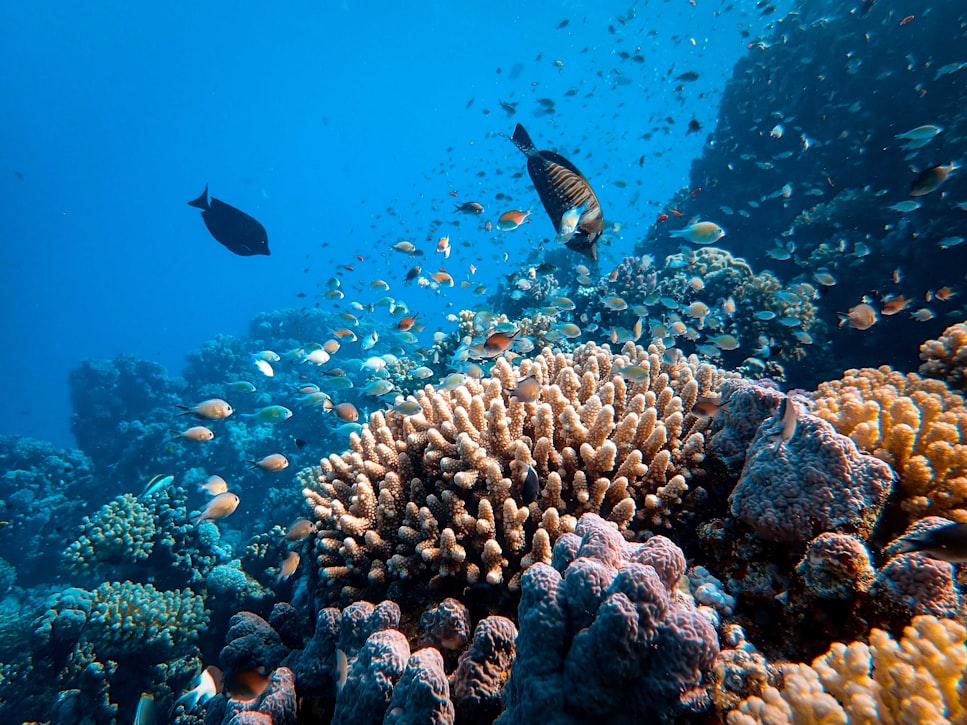Dr. Erika Woolsey Uses VR to Bring the Ocean Close to Home

In the words of Dr. Erika Woolsey: “the ocean is generally over-exploited, under-protected, and out-of-mind”, and if anyone were to be qualified to make that statement, it would be her.
Dr. Woolsey is a marine biologist who focuses on the impact our actions have on coral, and she is passionate about engaging the public in science. In fact, she is one of the founders of Hydrous, a non-profit creating open access to oceans. She also works with National Geographic as an Explorer on their public expedition trips around the globe, all in the name of getting the oceans back into our minds.
Over-Exploited and Under-Protected
It’s no secret that the oceans are having a rough time lately. The oceans are over fished, both for food as the human population grows and for the aquarium trade. Sea turtle eggs and sea turtles are caught for the pet trade. Shells and coral are harvested for the jewelry and knick-knacks sold in tourist spots. While seafood is a good source of many nutrients, we still don’t need wild animals as pets, nor do we need ornaments made from living things.
Additionally, only seven and a half percent of the ocean is protected around the globe, and not all protections are equal. Some protections prohibit tourism, others prohibit commercial fishing, while others allow commercial fishing but prohibit tourism. The United Nations had set a goal of ten percent being protected by 2020, and there are recommendations for thirty percent to be protected by 2030. Given we didn’t make the 2020 goal, all of us need to encourage our governments to reach the 2030 goal.

Keeping the Ocean In-Mind
Even if you live on the coast, keeping the ocean truly in-mind beyond recreation and beauty can be difficult. Luckily, there are many things we can do to see and help beyond the surface, including Dr. Woolsey’s projects.
As mentioned above, the Hydrous is a non-profit aimed at creating open-access to the oceans through 3D models of coral, virtual dives, and educational kits to help guide those virtual dives. They also created Immerse, a virtual dive film that can be watched with VR headsets for free on YouTube; it can be watched without VR, but it is definitely better with VR.

If you enjoy seafood, you can help by only eating sustainably harvested seafood. The Monterey Bay Aquarium has created an online tool, Seafood Watch, that recommends the best species to consume from an environmental standpoint. Be on the lookout for an upcoming Planet Home piece covering SeaWatch! They also have more general consumer guides to help teach us all what is going on under the surface.
If you want to help get the oceans protected, there’s several things you can do. First, you can directly contact your lawmakers to urge them to pass bills protecting the oceans. Currently in the US, there are twenty-six proposed bills aimed at marine life or pollution, including the West Coast Ocean Protection Act of 2021. Additionally, you can volunteer with many organizations aimed at protecting marine life, cleaning up the ocean, and helping after oil spills. If you can’t volunteer, you can donate or sign any of their numerous petitions.
At the end of the day, human life would not exist without the oceans, and we need the oceans for life as we know it to continue, well, as we know it. We need to act now, together, to protect the oceans, to protect ourselves.


Leave a Reply